The 5 Types of Business Traveler
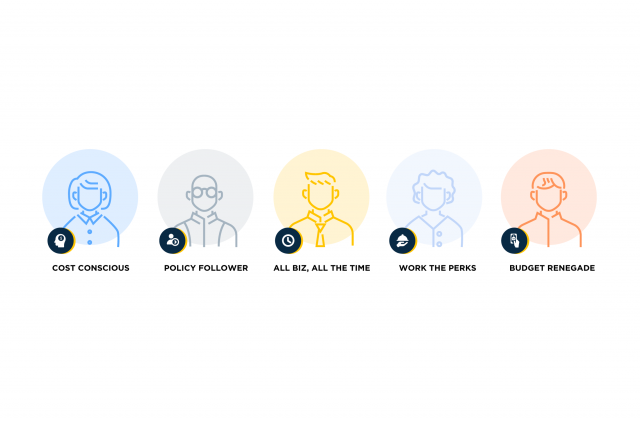
What type of business traveler are you? We surveyed 300 employees to get a handle on employee attitudes toward business travel in the age of Uber and Airbnb.
Travel is typically one of the biggest drivers of a company’s discretionary spend, especially for companies with sizable sales teams. Yet it’s also one of the most difficult to corral, as control continues to shift away from centralized travel departments, toward employees arranging their own flights, lodging, and transportation—often right from their phones.
We wanted to get a handle on employee attitudes toward business travel in the age of Uber and Airbnb, so we surveyed more than 300 employees to find out more. We identified five distinct types of business travelers.
1. The Cost-Conscious Traveler (28%)
| This type of traveler is motivated to help the company save money. Cost conscious travelers, who represented just under 30% of our survey takers, seek out cheap flights and inexpensive lodging, and rarely use full meal per diems. Many businesses ask employees to treat company money as their own, and this group takes that to heart. | 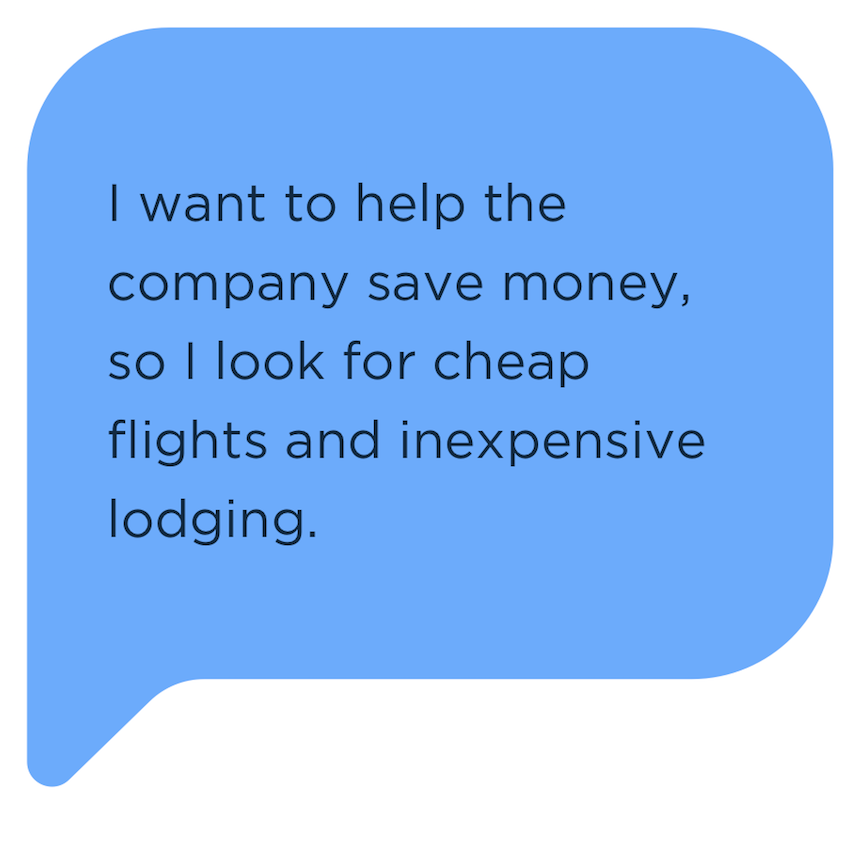 |
Of note:
- Cost-conscious travelers were more likely not to know what the budget is (22% vs. 16% overall). They’re doing their best to do the right thing despite a lack of clear information.
- This well-intentioned group was most likely not to complain about doing expense reports—4 out of 5 agree that they’re necessary to a well-functioning business.
2. The Policy Follower (37%)
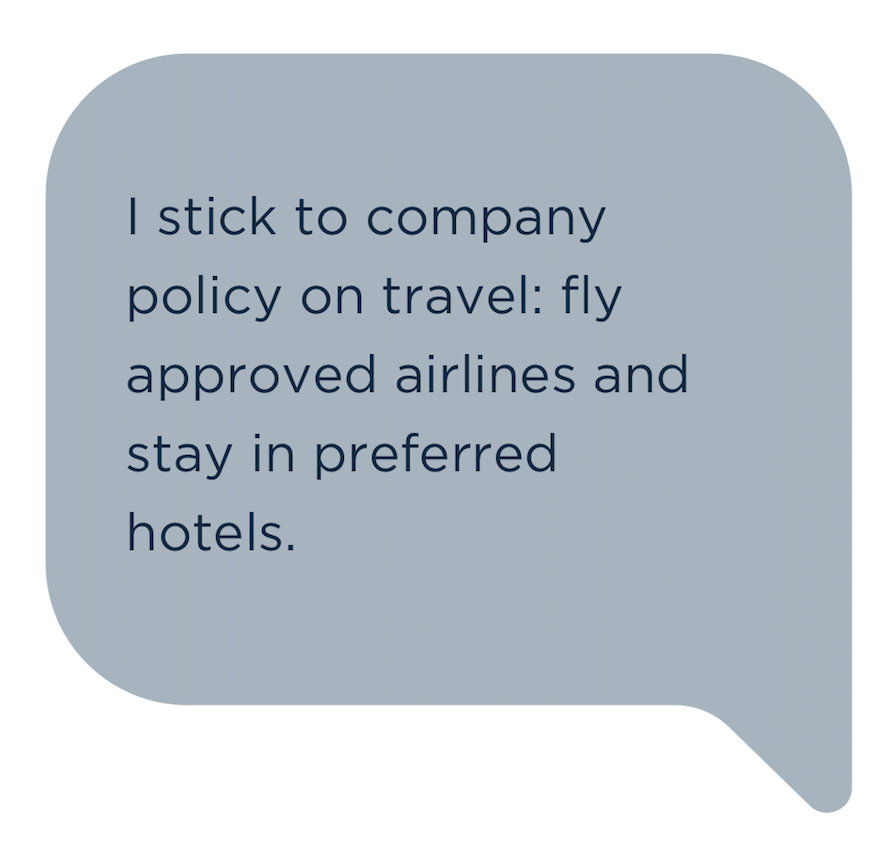 |
The Policy Follower—the most common type of business traveler in our survey—sticks to company travel guidelines. This type of traveler flies on preferred airlines, stays in approved corporate hotels, and carefully observes meal per diems. |
Of note:
- Policy followers are more likely to use online software like Concur (27% vs. 21% overall), and more likely to know what the budget is and keep spending within it (70% vs. 61% overall). This suggests that online tools, clear policies, and budget visibility play a significant role in keeping spending in check.
3. The All Business, All the Time Traveler (15%)
| This type of traveler tries to be reasonable with costs, but does what it takes to get the job done, even if that means booking more expensive flights or last-minute hotels. About 1 in 7 of the business travelers we surveyed described themselves this way. | 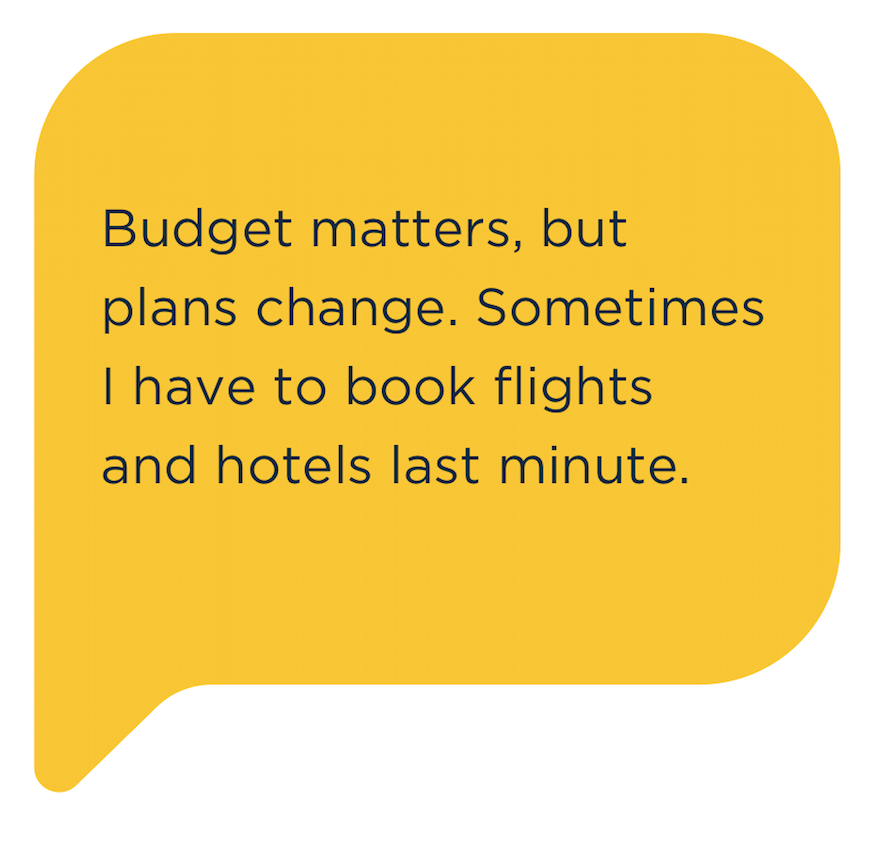 |
Of note:
- This type of traveler was more likely to file expense reports
manually (64% vs. 52% overall) and to say that filing expense reports is time consuming (39% vs. 27% overall). Comparing to the Policy Follower suggests that manual processes, combined with a “spend now, get approval later” model, make it more challenging to keep discretionary spend in check. - This group was somewhat more likely to charge things like rideshare services, music subscriptions, meal delivery, and Amazon purchases under the radar (19% vs. 13% overall).
4. The Work the Perks Traveler (13%)
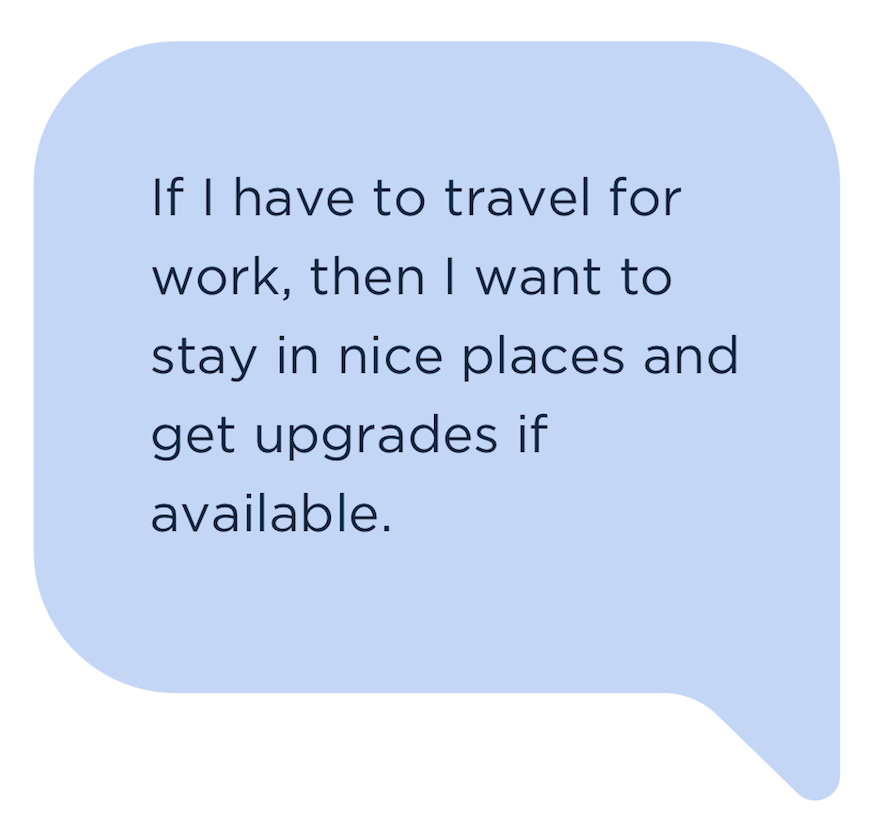 |
Though certainly the majority of business travelers we talked to act with the company’s best interest in mind, just under 15% of the respondents acknowledged that they want to eat and drink well, stay in nice hotels, take advantage of upgrades when available, and chose car services over public transit. |
Of note:
- This group was three times more likely to agree that expense reports are a waste of time, or that they don’t see the point (19% vs. 6% overall).
- This type of traveler was also more likely not to know what the budget is and just spend what they need (20% vs. 16% overall).
5. The Budget Renegade (6%)
| And a handful of travelers—about 6%—described themselves as Budget Renegades. These travelers may be unpopular with the finance team because they rarely stick to company policy, but ultimately feel they are doing the right thing because they deliver against their sales targets and goals | 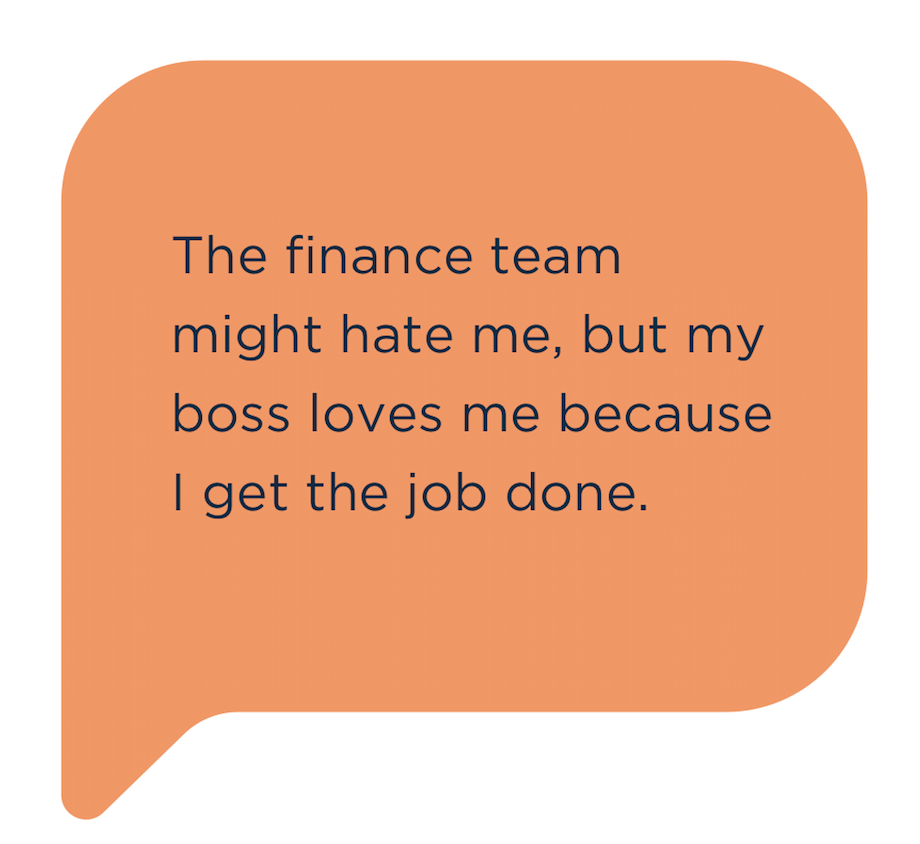 |
Of note:
- Most of these travelers (87%) are not required to submit expense reports. Of those that do, they’re more likely to complain that expense reports are time-consuming (40% vs. 27% overall).
- Budget Renegades are nearly twice as likely not to know what the budget is; they just spend what they need to get the job done (31% vs. 16% overall).
When there’s a lack of clarity and visibility into policies and budgets, a subset may Work the Perks, but many more do their best to make the most Cost-Conscious decisions. And companies who make clear policies and centralized tools a priority are rewarded with responsible Policy Followers.
Business needs change more frequently than budgets do, however, so there are times when employees need to be empowered to make smart, strategic spending decisions. All Business, All the Time spenders and even Budget Renegades believe their spending choices support larger business goals—which they certainly can, as long as their decisions yield results and don’t result in unexpected surprises.
The key is for businesses to have clear policies in place, for employees at all levels to have visibility into those budgets and policies, for budgets to be adjusted regularly along with changing business needs, and for teams to have frequent communication about how spending decisions do (or don’t) support the larger strategy.
TO THE POINT:
Across all five groups, we see employees generally trying to do the right thing when it comes to business travel.
